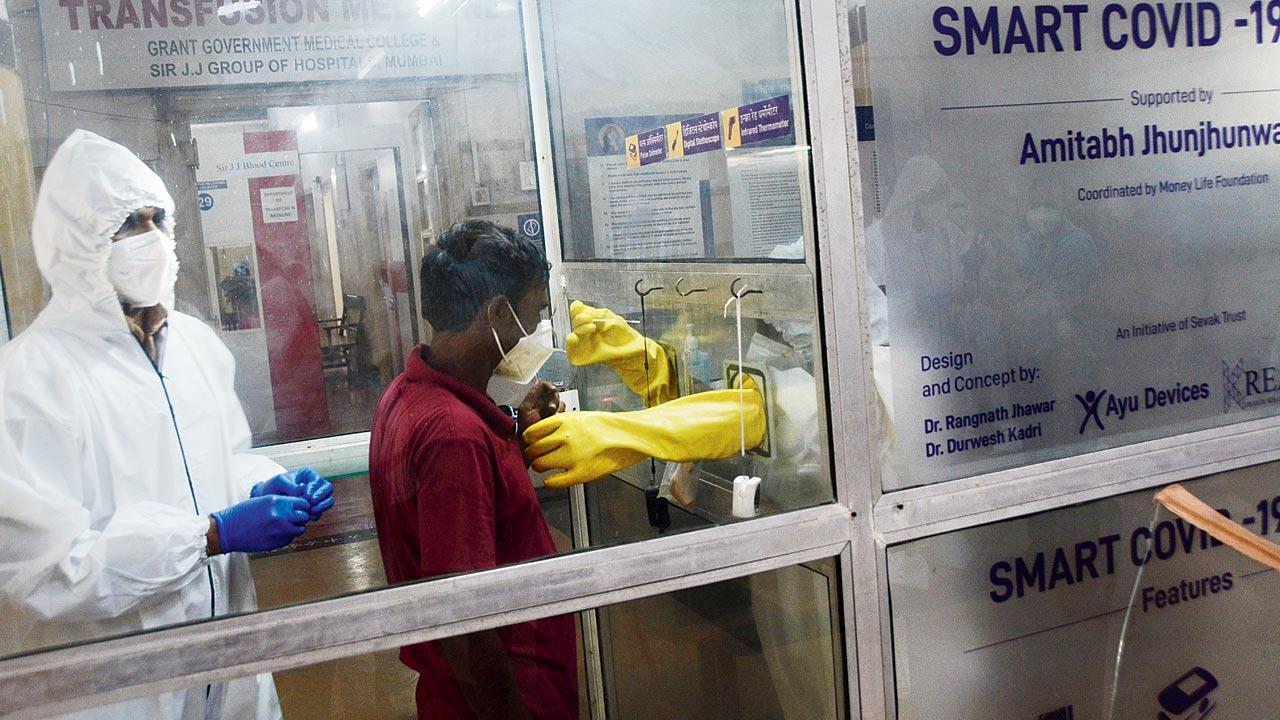Amid the recent rise in Covid-19 cases in India, driven by the subvariant of Omicron XBB.1.16, there has been an increase in risk of conjunctivitis among children aged below one-year, according to a study, not yet peer-reviewed

Image for representational purposes only. Photo Courtesy: iStock
Amid the recent rise in Covid-19 cases in India, driven by the subvariant of Omicron XBB.1.16, there has been an increase in risk of conjunctivitis among children aged below one-year, according to a study, not yet peer-reviewed.
ADVERTISEMENT
The study, led by Vipin M. Vashishtha, member of WHO's Vaccine Safety Net, is based on 25 children seen in OPD of a paediatric hospital in Uttar Pradesh between April 4-16.
"Our preliminary findings show a higher involvement of young infants than older children and mild respiratory illness predominates other presentations," Vashishtha, who is also a consultant paediatrician at the Mangla Hospital and Research Centre in Bijnor, UP, wrote in the study.
"One interesting finding was the presence of itchy, non-purulent conjunctivitis with mucoid discharge and stickiness of eyelids in 42.8 per cent of positive infants," he added.
Importantly, none of the children required hospitalisation. All recovered with symptomatic treatment, he said, in the paper published on preprint site Medrxiv.
Describing the cases on Twitter, Vashishtha said that the current Covid outbreak is causing a mild febrile illness lasting only 1-3 days.
He noted that respiratory symptoms are predominating in young infants, and the youngest case was a 13-day old newborn baby.
"Young infants are disproportionately more affected than older children. The youngest infant was a 13-day old neonate," he wrote on Twitter.
"Infants below one year had a significantly higher positivity rate than older children (40.38 per cent versus 10.5 per cent)," he added.
Also Read: Covid vaccine efficacy may depend on your sleep cycle
This story has been sourced from a third party syndicated feed, agencies. Mid-day accepts no responsibility or liability for its dependability, trustworthiness, reliability and data of the text. Mid-day management/mid-day.com reserves the sole right to alter, delete or remove (without notice) the content in its absolute discretion for any reason whatsoever
 Subscribe today by clicking the link and stay updated with the latest news!" Click here!
Subscribe today by clicking the link and stay updated with the latest news!" Click here!








